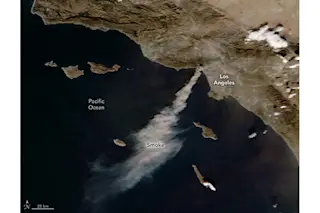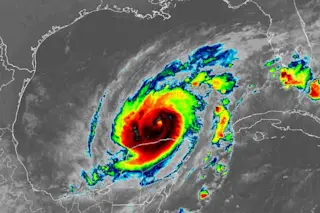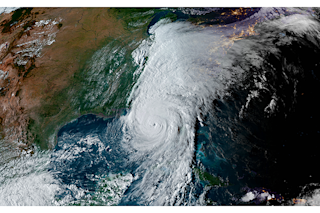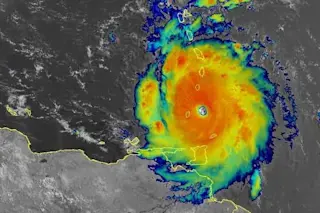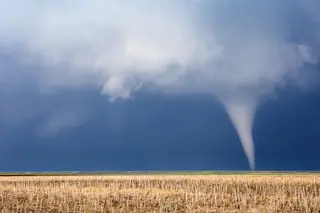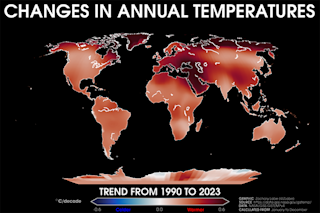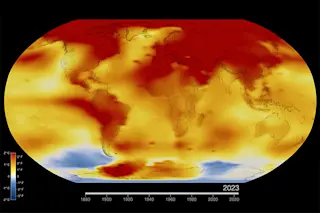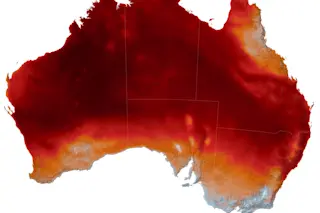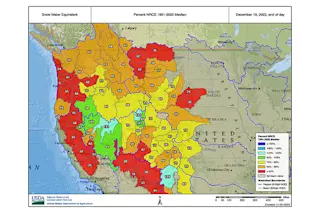Portrait of a warming planet. (Animation of false-color images acquired by the Himawari-8 satellite on Feb. 18, 2016. Note Cyclone Winston swirling on the right. Source: NOAA/RAMMB/RAMSDIS) This past February was plenty warm, and the Arctic was particularly so. In fact, measurements taken at Earth's surface may ultimately show that last month was warmer than any previous February in records stretching back more than a hundred years. But unlike what you may have read in recent days, we don't really know that yet. And claims that this shows global warming has gone into overdrive are overblown.
Source: Roy Spencer/University of Alabama True, February apparently was the warmest such month ever in the satellite record. (See thumbnail at right.) And as my colleague Andrew Freedman points out at Mashable, this deals a setback to people, including some presidential candidates, "who frequently cite the satellite record of atmospheric temperatures as evidence that ...


